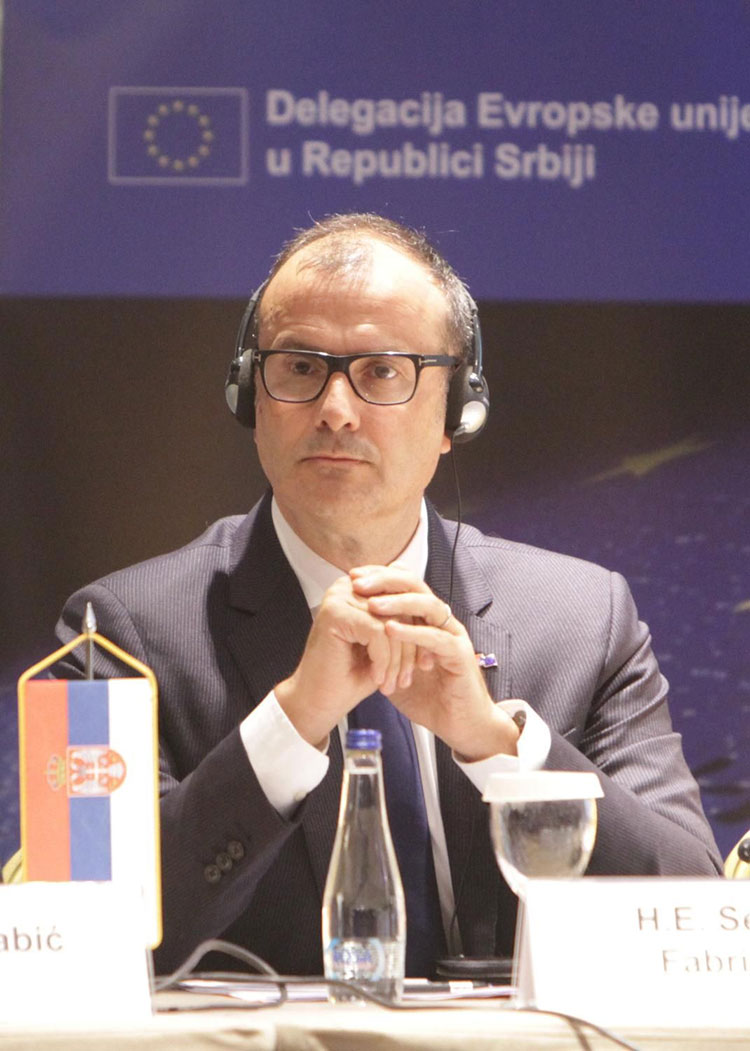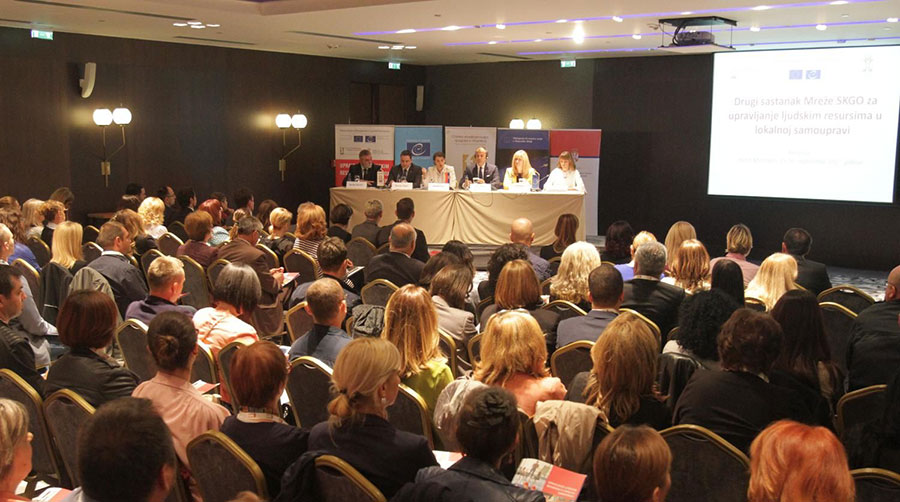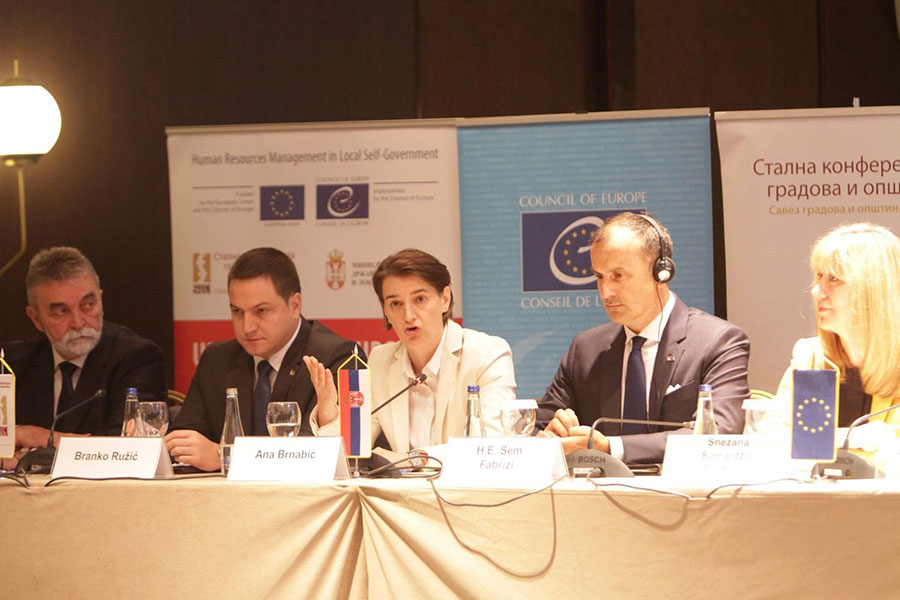Serbian Prime Minister Ana Brnabic said that draft Law on the National Public Administration Academy would be on the agenda of the National Assembly on 3 October, adding that she expected the Academy to be set up in mid-2018. “The Government aims to establish a professional, efficient and helpful administration at both republic and local level,” she said during the meeting of the SCTM Human Resource Management Network.
The National Academy will be an independent institution, working under the supervision of the Ministry of Public Administration and Local Self-Government and will be allowed to enter into cooperation agreements with leading universities in the world.
Minister of Public Administration and Local Self-Government of Serbia Branko Ruzic said that the first programme of general professional training aimed at civil servants in towns and municipalities would commence in the coming days within the EU-funded project implemented in cooperation with the SCTM and the Council of Europe.
“Some 1,500 of our colleagues will undergo training in areas crucial for achieving the functions of a local self-government,” Ruzic said.

FoNet
Fabrizi: EU continues to help, we are discussing possibility to fund second phase of this project with additional EUR3.6 million
Head of the EU Delegation to Serbia Sem Fabrizi said that public administration reform was of crucial importance for EU accession. “There can be no economic prosperity without a strong and efficient public administration,” Ambassador Fabrizi said and added that he expected the law on salary system of employees in the public sector to be adopted soon, noting that the EU monitored the developments in that area.
Speaking about the project implemented by the EU and the Council of Europe, aimed at the development of human resources management in local self-governments, he cited a couple of successful examples.
“The municipality of Medvedja managed to establish a well-functioning multi-ethnic working environment. Pancevo developed a professional training system, while the City of Belgrade established a functioning human resource management mechanism despite its complexity. Pirot, Raska, Savski Venac were also successful in reorganising and maximizing the efficiency of human resources management in their administrations,” Head of the EU Delegation to Serbia Fabrizi said.
He said the EU would continue to extend support in this regard. “As this project was so successful, we are discussing with the Government the possibility to fund a second phase of this project, with additional EUR3.6 million for a period of three years,” Ambassador Fabrizi said. Read his full speech here
Secretary General of the SCTM Djordje Stanicic said that the Public Administration Academy would contribute to improving the work of towns and municipalities and changing the perception citizens have about the work of those institutions.

FoNet
“The Academy will contribute to harmonising the operation of local self-governments, their deadlines and legal bases,” Stanicic said.
Director General of the CoE DG Democracy Snezana Samardzic Markovic said that the Public Administration Academy would be the cornerstone for training of civil servants at the central and local level.




